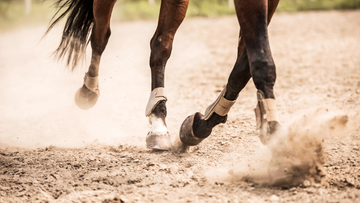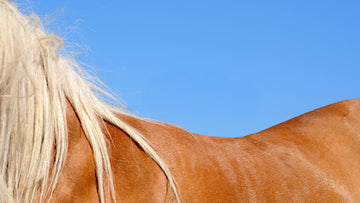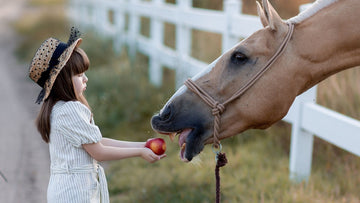Blog

horse health
What Are Horse Pasterns?
The pastern is made of two bones: the long pastern and the short pastern. The...
Read more
equine health
Horse Leg Anatomy 101
Are you a new horse owner, or are you just looking at having a more...
Read more
benefab
Edema in Horses: Causes + Treatment
Edema in horses is the accumulation of fluid somewhere in their bodies, most commonly in...
Read more
benefab horse blog
Preventing Mud Fever in Horses
As the temperatures grow colder, rain, snow, and ice accumulate in outdoor spaces and make...
Read more
benefab
Top Five Symptoms of Back Soreness in Horses
Horses’ backs quite literally bridge the gap between majestic necks, powerful legs, and swishing tails....
Read more
equine health
Tips for Feeding Horses in the Fall
As the change in seasons brings a welcomed drop in temperatures, beautiful foliage, and favorite...
Read more
equine
How Horses See the World: 10 Things to Know
As riders, it’s very easy to assume everything sees the world as we do. From...
Read more
hoof care
Laminitis In Horses
When we think about the saying "killing them with kindness," we do not think about...
Read more
Equine Wellness
Curb in Horses
Horses are extremely active animals. From racing and jumping to strategically controlling their movements through...
Read more
Dehydration
Winter Dehydration
Dehydration in horses during the winter is more of an issue than most people tend...
Read more
Animal Care
RAO or Heaves
The winter causes many horse owners to be particularly cautious of their horse’s health care....
Read more
equine wellness
Signs of Equine Neck Pain
Your horse's neck is an amazing system with over a hundred different muscles and seven...
Read more









